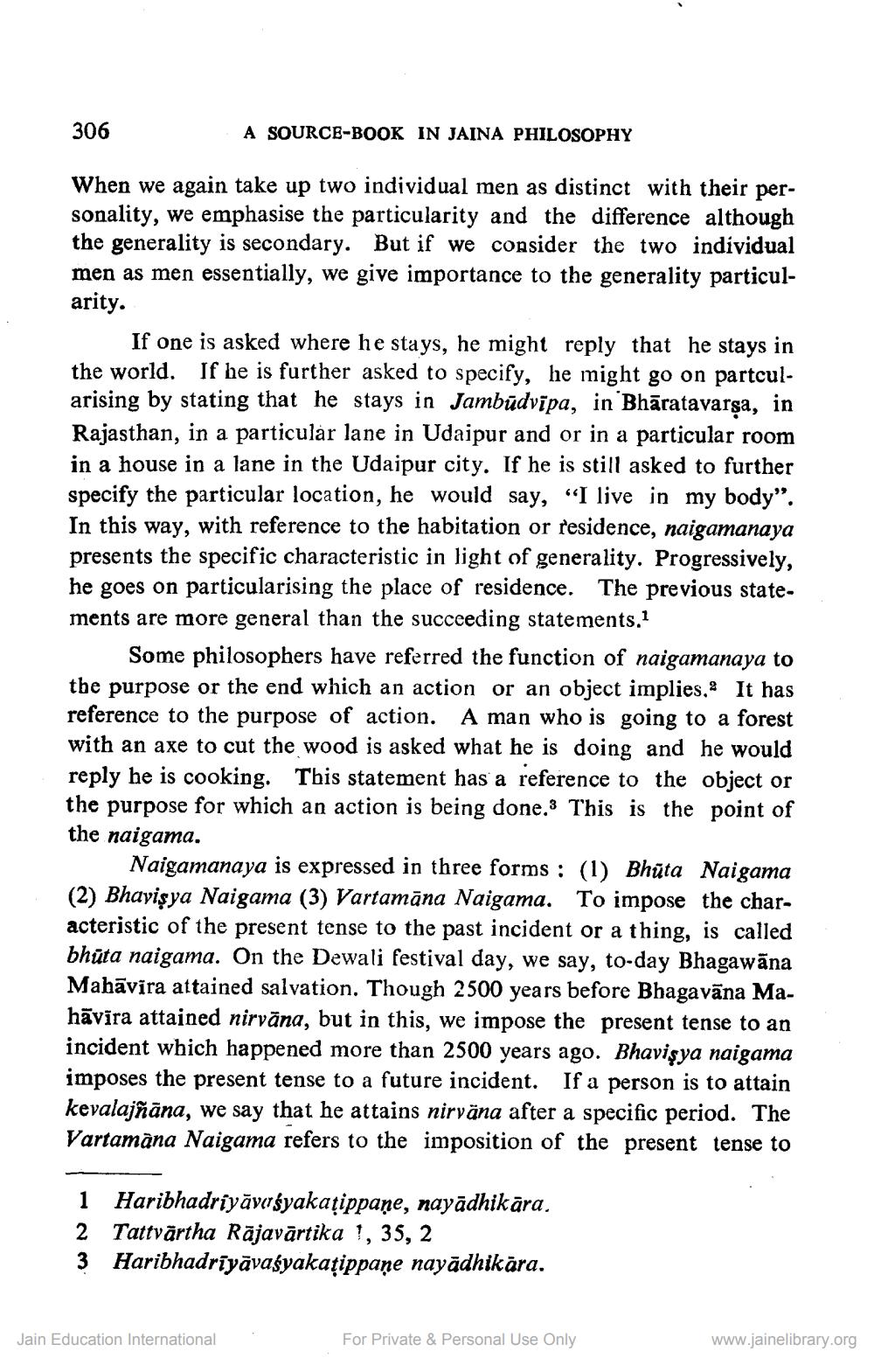________________
306
A SOURCE-BOOK IN JAINA PHILOSOPHY
When we again take up two individual men as distinct with their personality, we emphasise the particularity and the difference although the generality is secondary. But if we consider the two individual men as men essentially, we give importance to the generality particularity.
If one is asked where he stays, he might reply that he stays in the world. If he is further asked to specify, he might go on partcularising by stating that he stays in Jambūdvīpa, in Bhāratavarşa, in Rajasthan, in a particular lane in Udaipur and or in a particular room in a house in a lane in the Udaipur city. If he is still asked to further specify the particular location, he would say, “I live in my body". In this way, with reference to the habitation or residence, naigamanaya presents the specific characteristic in light of generality. Progressively, he goes on particularising the place of residence. The previous statements are more general than the succeeding statements.?
Some philosophers have referred the function of naigamanaya to the purpose or the end which an action or an object implies, 9 It has reference to the purpose of action. A man who is going to a forest with an axe to cut the wood is asked what he is doing and he would reply he is cooking. This statement has a reference to the object or the purpose for which an action is being done.3 This is the point of the naigama.
Naigamanaya is expressed in three forms : (1) Bhūta Naigama (2) Bhavisya Naigama (3) Vartamāna Naigama. To impose the characteristic of the present tense to the past incident or a thing, is called bhūta naigama. On the Dewali festival day, we say, to-day Bhagawāna Mahāvīra attained salvation. Though 2500 years before Bhagavāna Mahāvīra attained nirväna, but in this, we impose the present tense to an incident which happened more than 2500 years ago. Bhavişya naigama imposes the present tense to a future incident. If a person is to attain kevalajñāna, we say that he attains nirväna after a specific period. The Vartamāna Naigama refers to the imposition of the present tense to
1 Haribhadriyāverśyakațippaņe, nayādhikära. 2 Tattvārtha Rājavārtika 1, 35, 2 3 Haribhadrīyāvasyakațippaņe nayādhikāra.
Jain Education International
For Private & Personal Use Only
www.jainelibrary.org




